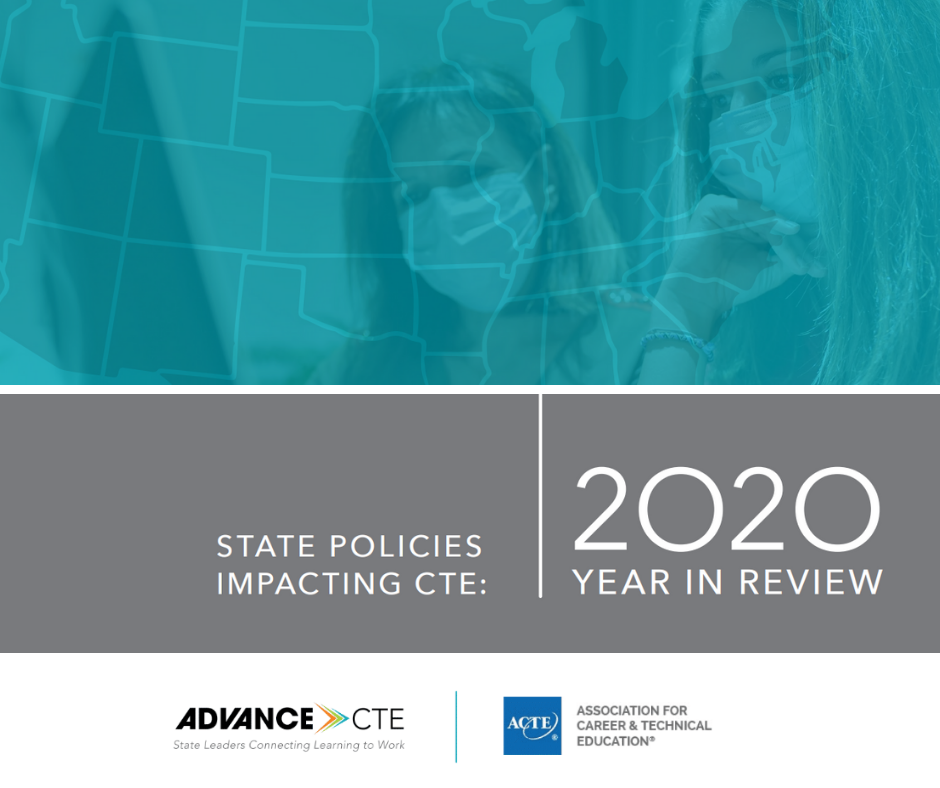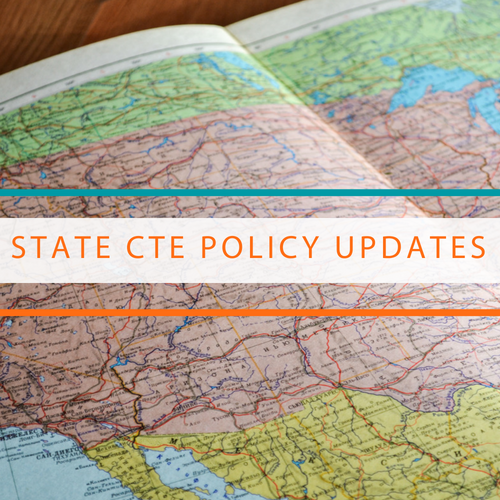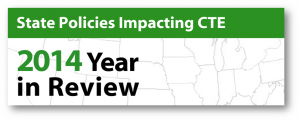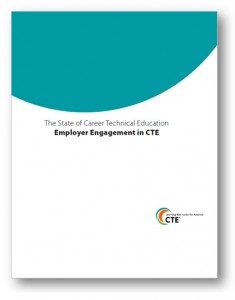 On the state and federal level, COVID-19 (coronavirus) fundamentally changed the conversation about education, significantly disrupting and refocusing state legislatures. Despite this, Career Technical Education (CTE) adapted to the challenges brought about by the coronavirus, continuing to deliver high-quality programming nationwide across all learner levels despite significant disruptions to education delivery. Because the pandemic was on the forefront of federal, state and local governments’ agendas, fewer policies and budget provisions for CTE were enacted than in previous years; in calendar year 2020, 31 states enacted or passed 67 policy actions related to CTE and career readiness.
On the state and federal level, COVID-19 (coronavirus) fundamentally changed the conversation about education, significantly disrupting and refocusing state legislatures. Despite this, Career Technical Education (CTE) adapted to the challenges brought about by the coronavirus, continuing to deliver high-quality programming nationwide across all learner levels despite significant disruptions to education delivery. Because the pandemic was on the forefront of federal, state and local governments’ agendas, fewer policies and budget provisions for CTE were enacted than in previous years; in calendar year 2020, 31 states enacted or passed 67 policy actions related to CTE and career readiness.
Today, Advance CTE and the Association for Career and Technical Education (ACTE) released the eighth annual State Policies Impacting CTE: Year in Review report, examining 2020 legislation, executive orders and budget provisions that significantly changed funding. With research support from the Education Commission of the States, Advance CTE and ACTE reviewed state activity, cataloged all finalized state policy actions and coded activity based on the policy areas of focus. In 2020, states most frequently addressed the following topics:
- Funding
- Industry partnerships and work-based learning
- Access and equity
- Dual/concurrent enrollment, articulation and early college
- Data, reporting, and/or accountability
The policy areas that states focused on in 2020 were similar to previous years. In 2019, funding, industry partnerships and work-based learning and access and equity were also in the top five key policy trends; however, in 2020, dual/concurrent enrollment, articulation and early college and data, reporting and/or accountability replaced industry-recognized credentials and governance in the top five key policy trends. Many CTE relevant bills and budgets, including those that increased state funding for CTE, were passed before the pandemic. However, due to unforeseen spending cuts, many state budgets (or supplemental budgets) enacted this year decreased state CTE funding for FY2021. This trend is expected to continue and even worsen as economic challenges continue for many states.
States have found creative ways to keep support for CTE at the forefront of their legislative agenda. Some states, like Louisiana, have already appropriated state funding for rapid response training to assist employers with training and reskilling that will result in quickly acquired industry-recognized credentials. Arizona, Delaware, Mississippi, and Ohio have all also enacted legislation creating programs to bolster work-based learning and workforce development programs strengthening learners, workers, and employers alike. Finally, states like Tennessee have relaxed requirements or sponsored wrap-around supports to strengthen CTE and dual enrollment programs.
Because of the critical importance CTE plays in workforce and economic development, it is expected that more CTE-related policies will be enacted in the coming years to support up-skilling and reskilling efforts during economic recovery. This indicates a continued commitment from state leaders to advance CTE. To view previous years’ Year in Review reports, click here.
Advance CTE and ACTE will be joined by state leaders on March 2 from 3:00-4:00 PM to discuss policy actions for 2020 and potential trends for 2021. Register today!
Dan Hinderliter, Policy Associate


 Since the beginning of the year,
Since the beginning of the year,  My name is
My name is  In Virginia and New Mexico, the state legislatures have taken action to expand opportunities for CTE learners. In Virginia, on March 5,
In Virginia and New Mexico, the state legislatures have taken action to expand opportunities for CTE learners. In Virginia, on March 5, 
